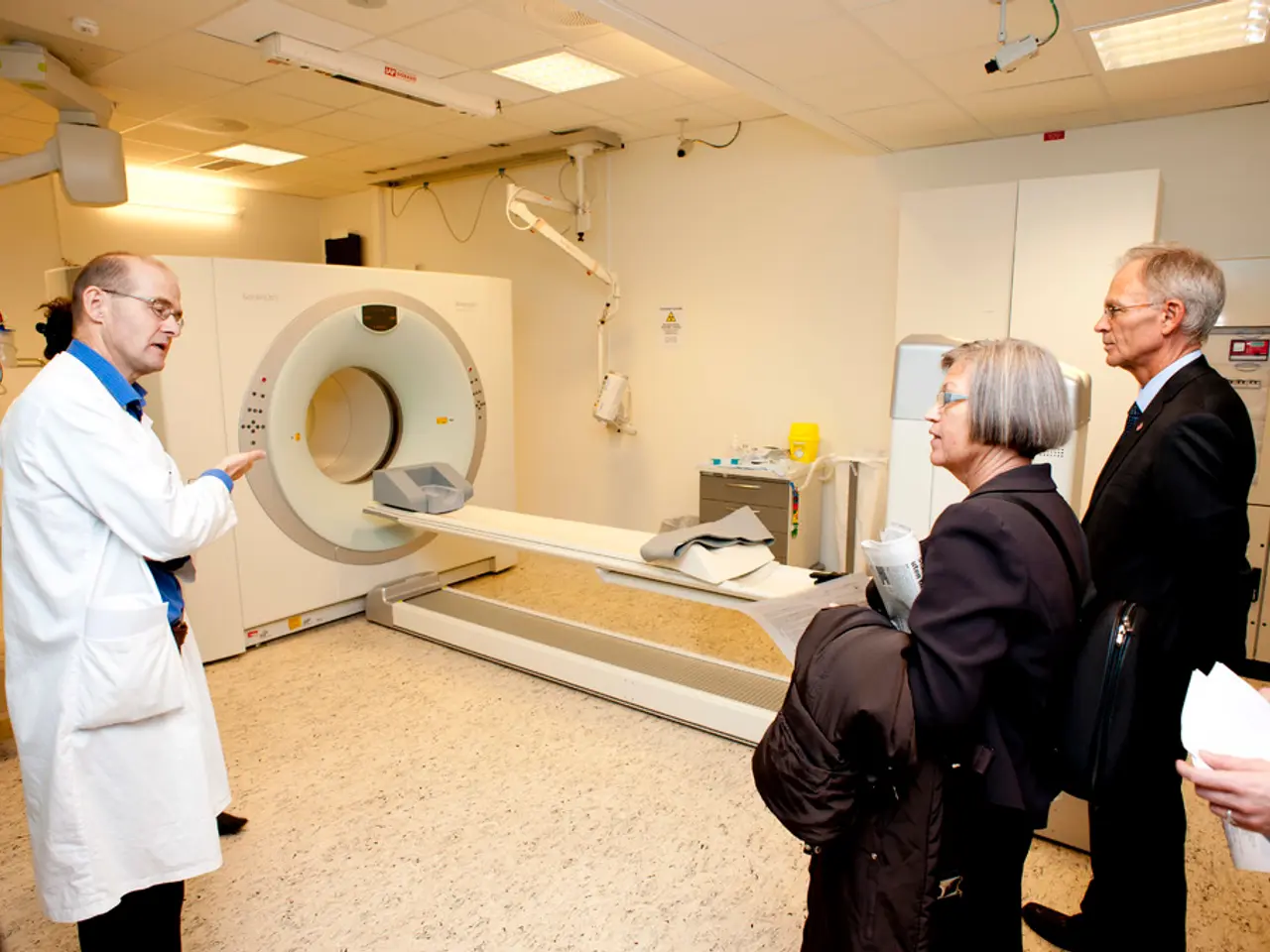Encouraging specialist consultations with financial rewards
Federal Minister of Health, Nina Warken, has proposed a new healthcare system that encourages patients to visit general practitioners (GPs) before specialist appointments, aiming to streamline the healthcare process and address the current shortage of GPs and functional digitalization nationwide.
According to Warken, the implementation of this system cannot happen overnight. She emphasised the importance of further digitization and a greater role for pharmacies in the healthcare system.
The German Foundation for Patient Protection has raised concerns about the current shortage of GPs, pharmacies offering medical services, and functional digitalization nationwide. While there is no direct mention of specific organizations currently working to build a sufficient number of GP practices, pharmacies with medical services, and functional digital infrastructure, the Bavarian Ministry of Health is actively promoting expansion and restructuring of hospital care in Bavaria with substantial funding. Private and non-profit organizations also play significant roles in care infrastructure development, including in nursing and pharmacies.
Discussions about restructuring the healthcare system and advancing digitalization in the sector are ongoing, but no explicit coordinated national initiative addressing all these aspects before mandated first contact with a GP was found.
The proposed system, as outlined in the coalition agreement between the Union and SPD, requires patients to visit a GP first and then be referred to a specialist if necessary. Markus Beier, co-chair of the German Association of General Practitioners, stated that older, chronically ill people could particularly benefit from this model due to the need for coordinated medications and frequent doctor's appointments.
Nicola Buhlinger-Goepfarth, co-chair of the German Association of General Practitioners, referred to existing GP programs with health insurance companies as a model for the proposed system. The German Association of General Practitioners supports the coalition's plans for a system that encourages patients to visit GPs before specialist appointments.
However, concerns have been raised by the German Foundation for Patient Protection about the potential bottleneck that GPs could become in the new system. Warken emphasised the need to ensure that GPs do not become a bottleneck in the new system. If the referral system does not work, patients should have the option to be treated by a specialist in a hospital.
Eugen Brysch, board member of the German Foundation for Patient Protection, emphasized the need to address these issues before implementing a mandatory first-visit-to-a-GP rule. The proposed system aims to guarantee a certain time frame for specialist appointments, with the primary visit to a GP. The success of this new system will depend on the effective coordination and resolution of these concerns to ensure a smooth transition and improved healthcare for all.
Read also:
- Trump's SNAP reductions and New York City Council's grocery delivery legislation: Problems for city residents highlighted
- Reducing dental expenses for elderlies in Sweden: Over 50% cut in charges for pensioners by the government
- Forty-year-old diet: A list of meal choices to savor
- Exiled Life's Conundrum: A Blend of Liberation, Disillusionment, and Distress






